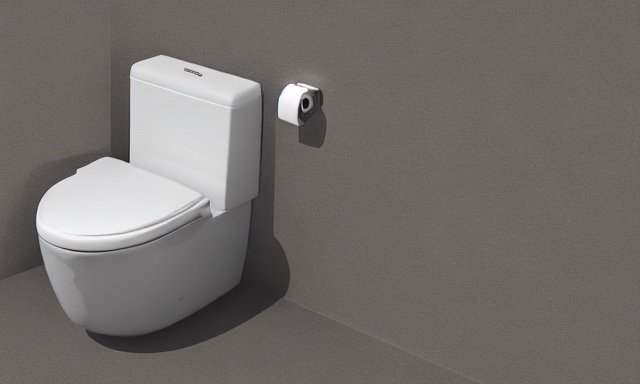Internet Asks: “Can Constipation Cause Chest Pain?”
Chest pain is a symptom that often triggers concern and raises questions about its potential causes. While chest pain can be attributed to various factors, one unexpected culprit that may surprise you is constipation. While it may seem unrelated, there is a fascinating connection between the gut and chest discomfort. Let's explore this intriguing topic and shed light on the possible link between constipation and chest pain.
sponsored links

The Gastrointestinal Roller Coaster
Constipation refers to infrequent bowel movements or difficulty passing stools. It occurs when the stool moves slowly through the digestive system, causing it to become hard and dry. Our digestive system is like a roller coaster ride, and constipation is one of the twists and turns along the way. When stool becomes hard and difficult to pass, it can cause various discomforts, including chest pain. Here's how it happens:
- Pressure Build-Up: Constipation leads to the accumulation of stool in the colon, causing increased pressure and bloating. This buildup can create a sensation of fullness or tightness in the chest, mimicking chest pain.
- Reflux and Heartburn: In some cases, constipation can trigger acid reflux, also known as gastroesophageal reflux disease (GERD). The regurgitation of stomach acid into the esophagus can cause a burning sensation in the chest, commonly referred to as heartburn. This discomfort may be mistaken for chest pain, leading to confusion between digestive and cardiac issues.
- Vagus Nerve Activation: The vagus nerve, responsible for controlling various bodily functions, including digestion, also has branches that connect to the chest and heart. When constipation occurs, the stimulation of the vagus nerve can trigger referred pain in the chest area, leading to chest discomfort.
Addressing the Constipation-Chest Pain Connection
If you're experiencing chest pain associated with constipation, it's important to address the underlying issue. Here are some strategies to relieve constipation and potentially alleviate chest pain:
- Increase Fiber Intake: Including fiber-rich foods in your diet, such as fruits, vegetables, whole grains, and legumes, can help promote regular bowel movements. Fiber adds bulk to the stool, making it easier to pass and reducing the likelihood of constipation.
- Stay Hydrated: Drinking an adequate amount of water throughout the day helps soften the stool and prevent dehydration, which can contribute to constipation. Aim for at least eight glasses of water daily.
- Exercise Regularly: Engaging in physical activity can stimulate bowel movements and promote regularity. Incorporate activities like walking, jogging, or yoga into your daily routine to keep things moving smoothly.
- Consider Laxatives or Stool Softeners: In some cases, over-the-counter laxatives or stool softeners may provide temporary relief from constipation. However, it's essential to consult with a healthcare professional before using these products to ensure they are safe and appropriate for your situation.
- Seek Medical Advice: If your constipation and chest pain persist or worsen despite lifestyle modifications, it's crucial to consult with a healthcare professional. They can evaluate your symptoms, provide a proper diagnosis, and recommend appropriate treatment options.
sponsored links
When to Seek Medical Attention
While constipation-induced chest pain is typically harmless, it's crucial to be aware of warning signs that may indicate a more serious condition. Seek immediate medical attention if you experience any of the following:
- Severe or Prolonged Chest Pain: Intense or persistent chest pain should never be ignored, as it may indicate a heart-related issue.
- Shortness of Breath: Difficulty breathing or shortness of breath, especially accompanied by chest pain, could be a sign of a medical emergency.
- Radiating Pain: If the pain spreads to your arms, jaw, neck, or back, it could be a symptom of a heart problem and requires immediate medical evaluation.
Remember, chest pain should never be ignored or self-diagnosed. If you experience severe or persistent chest pain, seek immediate medical attention to rule out any serious cardiac conditions.
Conclusion
While constipation may not be the first thing that comes to mind when experiencing chest pain, it can indeed be a contributing factor. The pressure build-up, reflux, and vagus nerve activation associated with constipation can cause chest discomfort. By addressing constipation through dietary adjustments, hydration, exercise, and, if necessary, medical intervention, you can potentially alleviate chest pain and promote overall digestive health. If you're unsure about the cause of your chest pain, always consult with a healthcare professional to ensure an accurate diagnosis and appropriate treatment.
Disclaimer: The information provided in this article is for educational and informational purposes only. It is not intended as a substitute for professional medical advice, diagnosis, or treatment. Always seek the advice of your physician or other qualified health providers with any questions you may have regarding a medical condition.
sponsored links
References
- National Library of Medicine. Hypoxia and chest pain due to acute constipation: an underdiagnosed condition? https://pubmed.ncbi.nlm.nih.gov/9773918/
- Wiley Online Library. Constipation-induced pressor effects as triggers for cardiovascular events. https://doi.org/10.1111/jch.13489
- Delc Medical Center. Chest and Abdominal Pain: What It Means and How to Treat. https://primarycarefriscotx.com/frisco-tx/chest-and-abdominal-pain-what-it-means-and-how-to-treat/
- HEALTHCARE ASSOCIATES OF TEXAS. Can Gas Cause Pain In Chest? https://healthcareassociates.com/can-gas-cause-pain-in-chest/
- WebMD. What Is Constipation? https://www.webmd.com/digestive-disorders/digestive-diseases-constipation
- Cleveland Clinic. Chest Pain. https://my.clevelandclinic.org/health/symptoms/21209-chest-pain
People are also reading...
Can Acid Reflux Cause Back Pain?
Are Strawberries Acidic?
Are Pineapples Acidic?
Ready to level-up?
Create meal plans 10x faster, follow up with your clients through our mobile app, and never struggle with meal planning or recipe management again.